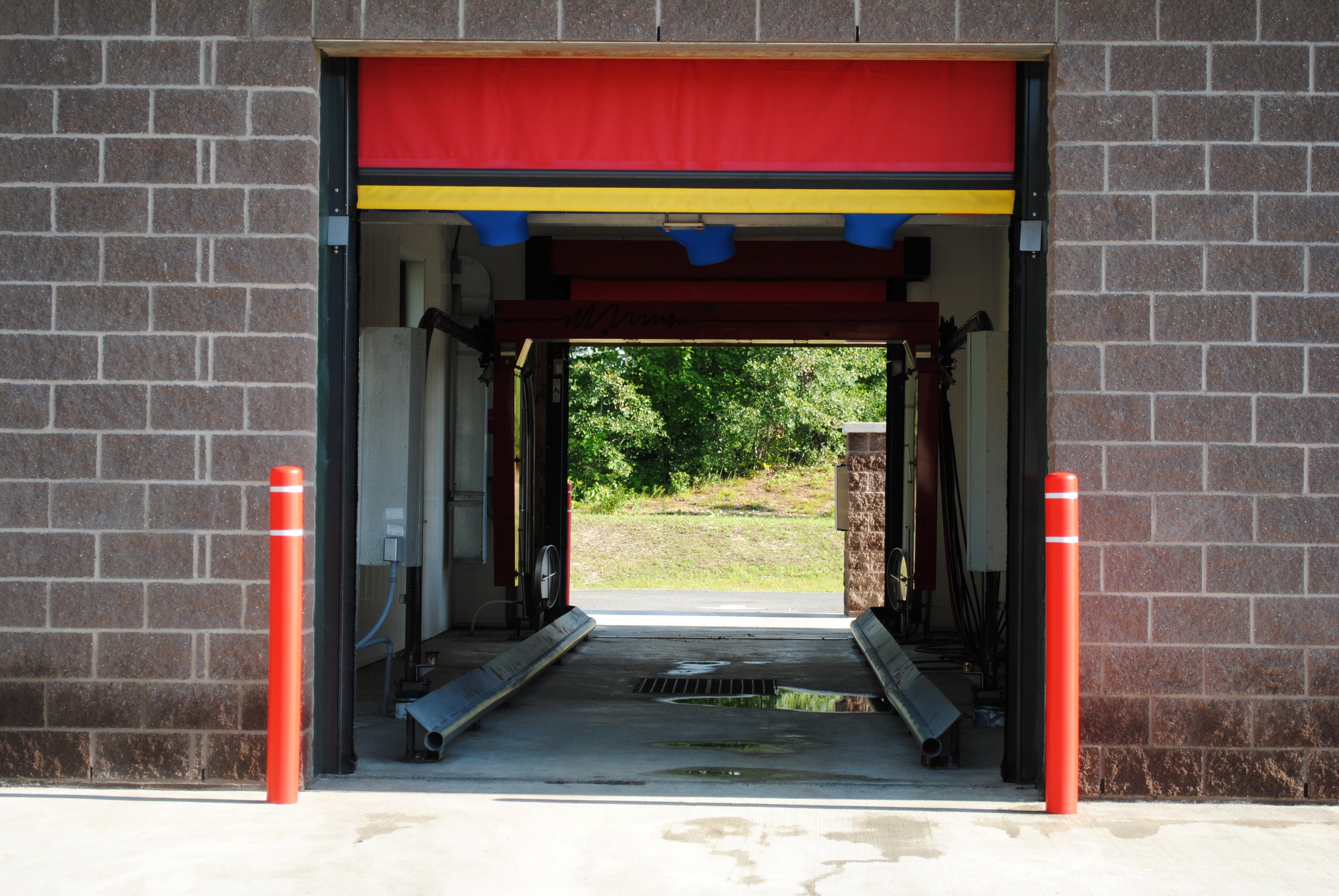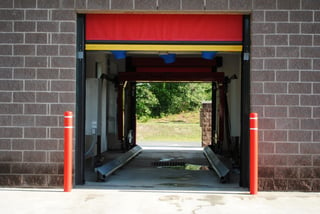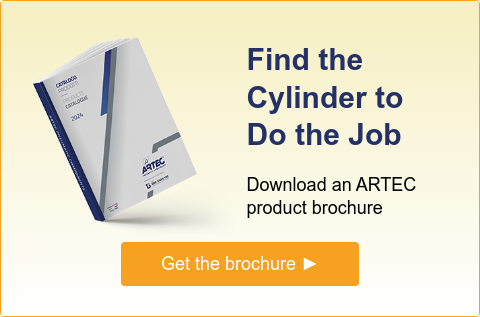

The biggest question you might ask when choosing an overhead pneumatic door operator is, “Why pay more for pneumatic when an electrical operator will do?” The answer is that the added expense more than pays for itself in applications that require the smooth performance, higher speed, and increased dependability that pneumatic door operators offer. Here are some tips that will help you make the right choice.
The greatest advantage of pneumatic door operators over electrical is dependability. Pneumatic door operators are, by design, air cylinders. A basic pneumatic operator looks like two rod cylinders connected by a chain and sprocket. Lower-cost electrical operators can require costly maintenance – meaning potentially lost customers who can’t enter, or equipment damaged to the elements when the door won’t properly shut.
Dependability revolves around two important qualities in the right pneumatic door operator: speed and power.
Speedy Operation
Speed becomes important when you’re trying to keep out elements that can damage equipment, like cold weather. Saving seconds in opening and closing times can make a big difference in working equipment when temperatures dip below freezing. Also, in an application like a car wash, continuous door cycling paces customers through the service, adding up throughout the year.
The Power Factor
When you take a heavy polycarbonate panel door, loaded with ice and snow, a powerful pneumatic operator can make or break smooth operation. Even in locations with mild winters, slight changes in temperatures can cause doors to bind. A powerful pneumatic door operator can help minimize these difficulties.
Watch a video on our 20+ year-long relationship with Airlift Doors
Most Important Features To Look For
Outside of speed and power, there are other important factors to consider when comparing pneumatic door operators and cheaper electrical ones.
- Repairability – You want to protect your initial investment, so ask what it takes to rebuild after regular wear. Some pneumatic operators with magnetically coupled piston designs are repairable.
- Force – Ask about bore size and port size. Larger bore size operators produce more force. Larger port size can produce more speed. Be sure to check your available air pressure. If it is a magnetically coupled operator, ask about the magnet coupling force in pounds.
- Internal Cushions – These allow for controllable, smooth acceleration and soft deceleration, which is important for the life of your operator. Cylinder, door, and operator slamming without cushions can cause a lot of unnecessary wear and tear.
- Warranty – How long is the warranty for your operator, and does the manufacturer stand behind it? Always ask for a written warranty. Seek referrals. Ask others who have used similar operators and consider their overall experience.
- Custom Sizes – Are custom sizes available for your particular operation? For example, you may need a 9 ft., 7 in. operator instead of a standard 10 footer. Find out about custom strokes as well as long ones when it comes to special applications.
- Tube Wipers – Crucial for car wash applications, these help keep the cylinder body clean, also important for the life of your operator. Wipers remove grease, detergents, and particulates that can build up on the operator.
- Mounting Flexibility – Many configurations are available for low-rise and high-lift overhead doors. Jack-Shaft-Operators are available in high-performance pneumatic models. The best choice is the trolly or draw-bar style operator, because it operates high and dry and is less affected by the environment. It’s important to be aware of all options available, as well as flexible installation in a variety of locations.
When smooth performance, speed, and dependability are required, a pneumatic door operator may be the right answer, with the added up-time and product life advantages wildly exceed the additional upfront costs.


